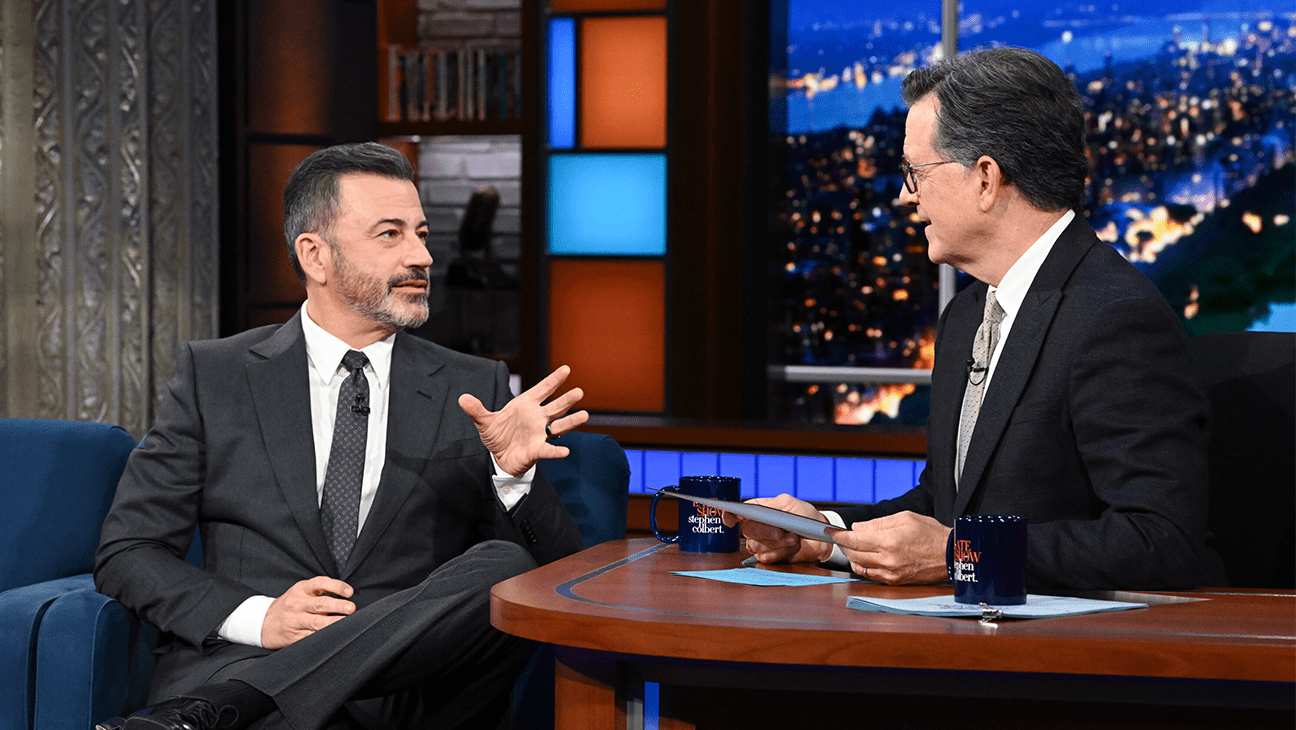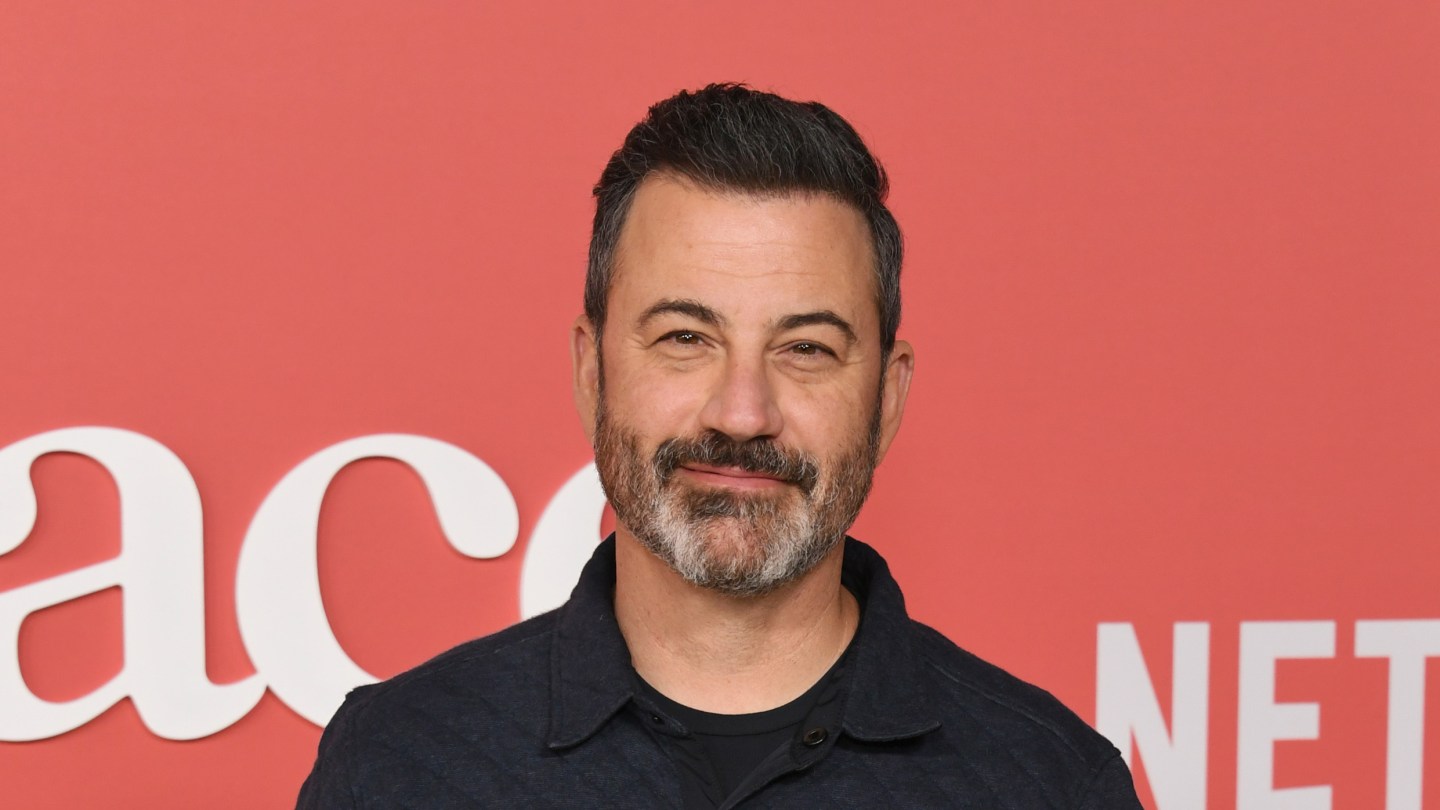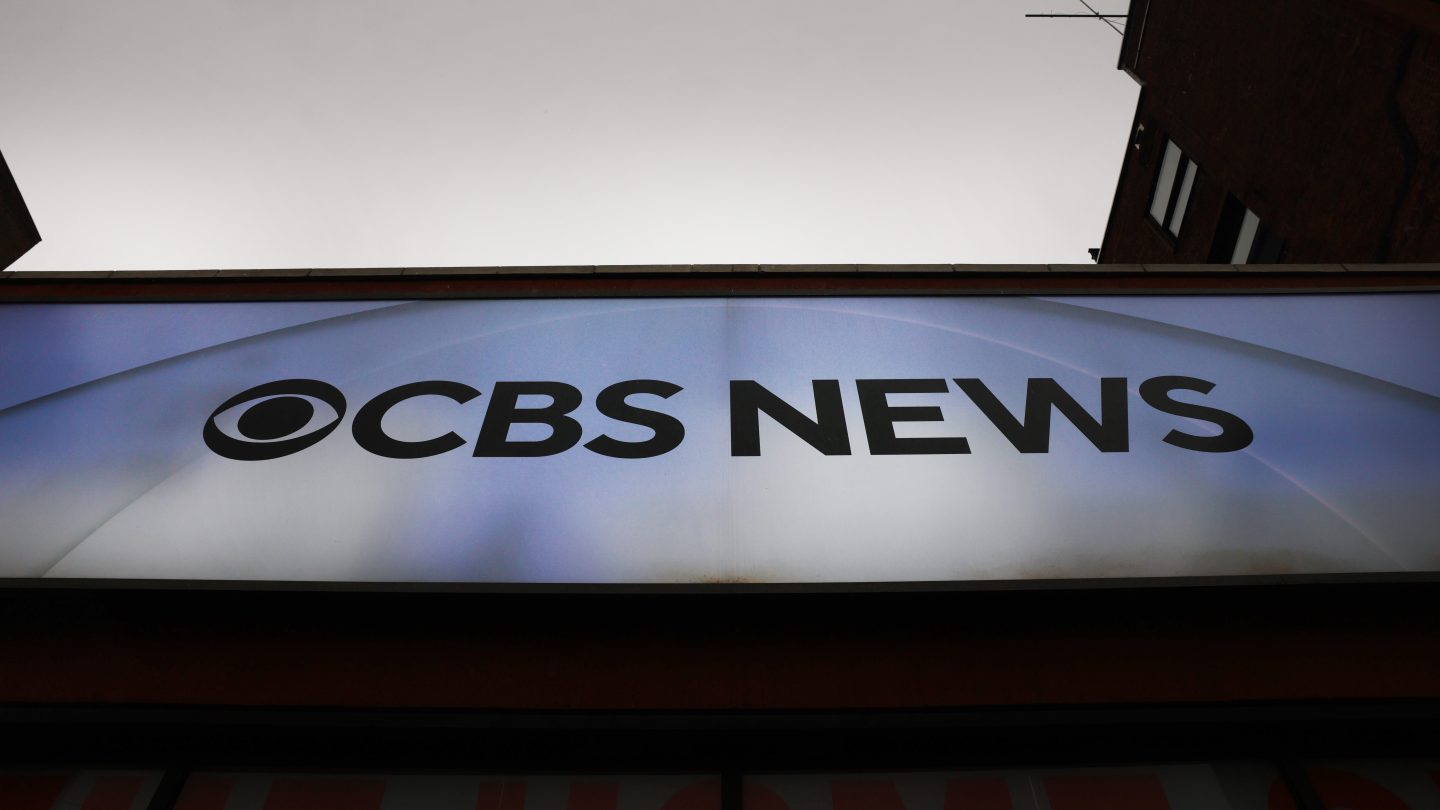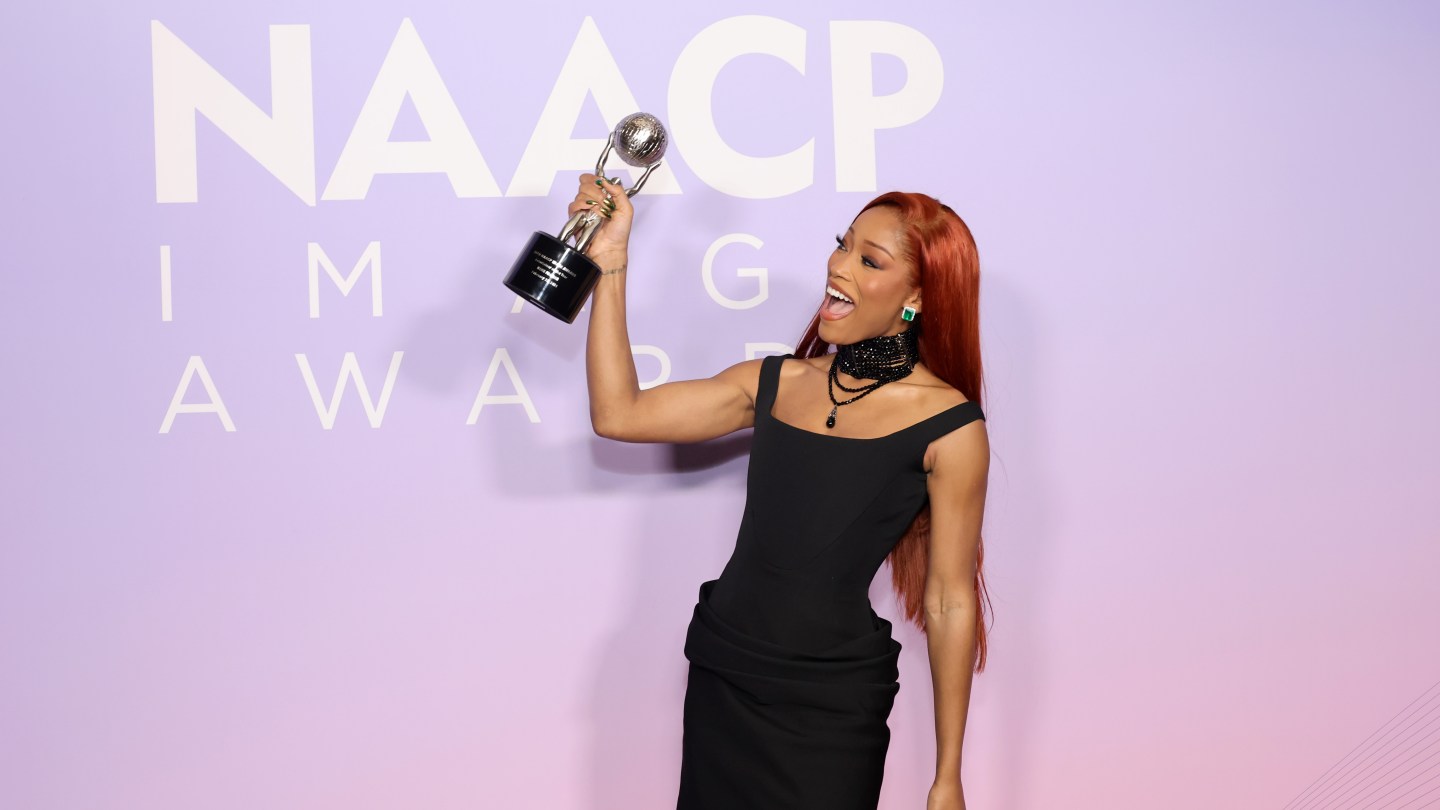The second to last question Bloomberg’s Lucas Show asked of Jimmy Kimmel in the final moments of their interview at Screentime in Los Angeles on Wednesday evening just so happened to be the million dollar one that all of Hollywood has been asking for quite some time: Who is going to be the next CEO of Disney?
“I happen to love Dana Walden very much, and I think she’s done a great job,” Kimmel said after acknowledging that it would be “very foolish” of him to offer any response at all, which makes sense considering his status as one of the studio’s high-profile in-house talents. But he’s had a lot of dealings with Disney’s executive class as the host of ABC’s Jimmy Kimmel Live!, and a direct line to the very top in recent days amid his controversial suspension.
He factored the latter into his decision to back Walden: “I think what has happened over the last like three weeks was very unfair to my bosses at Disney. I don’t think anyone should ever be put in a position like this. It is insane, and I hope that we drew a really, really bold red line as Americans about what we will and will not accept them, and really hope that that’s what comes out of all of it.”
Kimmel’s Screentime appearance came two weeks after he returned to the airwaves on ABC’s Jimmy Kimmel Live! following a brief but monumental suspension that kicked off a debate over free speech. It all started when Kimmel delivered comments on the Sept. 15 edition of his show about Charlie Kirk’s assassin, saying, “We hit some new lows over the weekend with the MAGA gang desperately trying to characterize this kid who murdered Charlie Kirk as anything other than one of them and doing everything they can to score political points from it.”
The moment went viral and sparked backlash. Brendan Carr was among those who commented, and the FCC chair went so far as to threaten ABC’s affiliate licenses. Two days later, Disney bosses made the decision to suspend Jimmy Kimmel Live!, a suspension that lasted less than a week amid widespread backlash from Hollywood’s creative community which turned out to support the beloved host online and in real life. His return, marked by a nearly 30-minute opening, delivered record ratings and found Kimmel expressing gratitude to his supporters, clarifying his comments about Kirk and defending free speech.
At Screentime, Kimmel elaborated on the behind-the-scenes negotiations as his show went dark. “I hate to disappoint you, but they were really good conversations. I mean, like, really good conversations,” Kimmel said of chats with Walden and current CEO Bob Iger. “These are people that I I’ve known for a long time, and who I like very much. And we all wanted this to work out best.”
That said, the firestorm did disrupt their schedules. “First of all, I ruined Dana’s weekend. It was just nonstop phone calls all weekend. But I don’t think the result would have been as positive if I hadn’t talked to Dana as much as I did, because it helped me think everything through. And it helped me understand where everyone was coming from. I can sometimes be reactionary, I can sometimes be aggressive, and I can sometimes be unpleasant. And having those days to think about it was helpful.”
Kimmel had a lot to think about on Wednesday night as Shaw grilled him on the suspension, his prediction on the future of late night TV, the economics of his show, whether he plans to re-up his contract next year and what he really thinks of the Riyadh Comedy Festival. Highlights are below.
Kimmel Thought His Show Might Never Come Back
During his suspension, the veteran host thought it his run might be over. “I’m a troublemaker, just by nature,” he said in recalling back to his early days hosting the show at a time when the Los Angeles Lakers faced off with the Detroit Pistons in the 2004 NBA playoffs. “I said something to the effect of, ‘Well, I hope they don’t burn Detroit down.’ And everyone in Detroit was very unhappy. People were mad, and they pulled me off the air in Detroit. A guy who’s really been like my mentor at ABC, Alex Wallau, said to me, ‘You know, if we don’t have Detroit, you’re done with the show. The show’s over.’ I said, ‘Really?’ He said, ‘Yeah, you can’t go forward without a major market like that,’ which was news to me. So I went to Detroit and did the show for a week and kissed as much ass as I possibly could.”
Knowing the implications of losing one major market loomed large over the suspension that saw around 70 ABC affiliate stations owned by Sinclair Broadcast Group and Nexstar Media Group dropping the show. “Knowing that, I was like, well that’s it.” That and Kimmel added that he was not going to go along with the “list of demands” presented to him by those affiliates, which included an apology and a donation to Kirk’s Turning Point USA. “I said to my wife, ‘That’s it. It’s over.’”
As Kimmel Finalized Return, He Knew “Spirit” of Monologue
As the powers-that-be hashed out a plan for Kimmel’s return to the airwaves, they didn’t formalize exactly what he would say on the first night back but rather they agreed on the “spirit” of those comments. “Ultimately, I wanted to kind of cover every base if I could,” he said. “It was something really that had to come from inside me. It had to be truthful, and I had to lay it all out there and just be honest about what I was feeling and what I’d experienced. I think that it probably went about as well as it could go. I knew that it wasn’t going to be perfect. There were always going to be people that didn’t like it and didn’t accept it, but the important thing to me was that I was able to explain what I was trying to say.”
Kimmel Doesn’t Believe Economics Led to Stephen Colbert’s Cancellation
In July, CBS confirmed in a shock announcement that was pulling the plug on The Late Show With Stephen Colbert. In the months since, much has been made about the reasons why, and Kimmel said that he doesn’t believe the reports that claim it’s because Colbert’s show was losing upwards of $40 million per year. “Because it just doesn’t make any sense. I know what the budgets for these shows are. I know what I make. I know what Stephen makes. I know what the ad sales people make. I know that there are values that nobody bothers to consider, like the affiliate fees that have to get to account for a portion of that when you talk about an hour of television every night, five nights a week. I know that it’s not $40 million. Is the show losing money? That I don’t know? I can’t imagine it’s losing a lot of money, if it is.” Shaw then asked Kimmel for a “ballpark” figure of what a show like his costs to produce. “$120 million,” he confirmed. “I know that if we’re losing so much money, none of us would be on. That’s kind of all you need to know. This is not PBS, you know?”

Late Night Can Survive — At a Cost
Amid industry wide concerns about the future of late night, Kimmel said he doesn’t believe there’s a reason for these shows to go away entirely. “There are ways,” he said, pointing to tighter production costs. “The idea that these shows need to cost $120 million is crazy. They don’t need to cost $120 million, and somebody will figure it out. … You could still have the same format, you could still have a band, you could have all of those things and still do the show for a lot less money. It’s just that the host is not going to make as much money, and audience isn’t going to be as big. But that’s OK, because I love seeing these things, and I love the idea that people can make a living with 200,000 viewers every day or every night. And they can talk about weirdly specific things, and those people who are really interested in those weirdly specific things have a place to take those to absorb that stuff. I think that’s great. I love the idea that a 16 year old can have their own TV show.”
Kimmel Would’ve Said No to Riyadh Comedy Festival
In recent days, the Riyadh Comedy Festival has caused a firestorm of controversy, and the subject came up as Shaw asked Kimmel about having Aziz Ansari on his show recently to promote his new film Good Fortune. Ansari was among the 50 or so comedians that traveled to Saudi Arabia, and Shaw indicated that Kimmel’s line of questioning made it seem like he was against the event. “I wouldn’t have gone, but I wanted to hear his reasons, and I thought he had some compelling reasons,” Kimmel explained. “Nothing’s black and white. It’s not something I would do but I do understand the idea that if we close ourselves off to the world, or we isolate, that maybe it’s not good.” Kimmel continued by saying that while traveling “many of us” don’t want to be held accountable for what President Trump says. “I’m fortunate enough to be well known, and people know where I’m coming from but it would be a different situation if people didn’t know who I was. Probably the first thing I’d say as I got into every cab is, ‘I didn’t vote for him, just FYI so you know.’ I do think that kind of makes me understand [their] position better.”





